Miami, Florida, stands out as one of the most diverse and bilingual cities in the U.S., where only 25% of residents are native English speakers, with the majority speaking languages like Spanish, French, and more. But recently, Miami’s locals have adopted a unique language style that’s capturing researchers’ attention. This new way of speaking, blending English and Spanish influences, is now officially recognized as “Miami English.” Findings on the dialect were recently published in English World-Wide.

For several years, researchers from Florida International University have tracked this emerging dialect in Miami, but only now is it truly flourishing among the city’s residents. Expressions in Miami English sound familiar but with a distinct twist—like saying “She got married with him” instead of “She got married to him.” Or swapping “Get out of the car” with “Get down from the car.” Another common phrase shift: “I waited in line to pay for my groceries” becomes “I made a line to pay for my groceries.” This fresh fusion is one that only Miami could produce.

“All words, dialects, and languages have a history,” Professor Phillip Carter, Director of the Center for Humanities in an Urban Environment at FIU, told IFL Science. “In Miami, there are many ways of speaking English. The variety we have been studying for the past 10 years or so is the main language variety of people born in South Florida in Latinx-majority communities,” he added. “The variety is characterized by some unique but ultimately minor pronunciations, some minor grammatical differences, and word differences, which are influenced by the longstanding presence of Spanish in South Florida.”
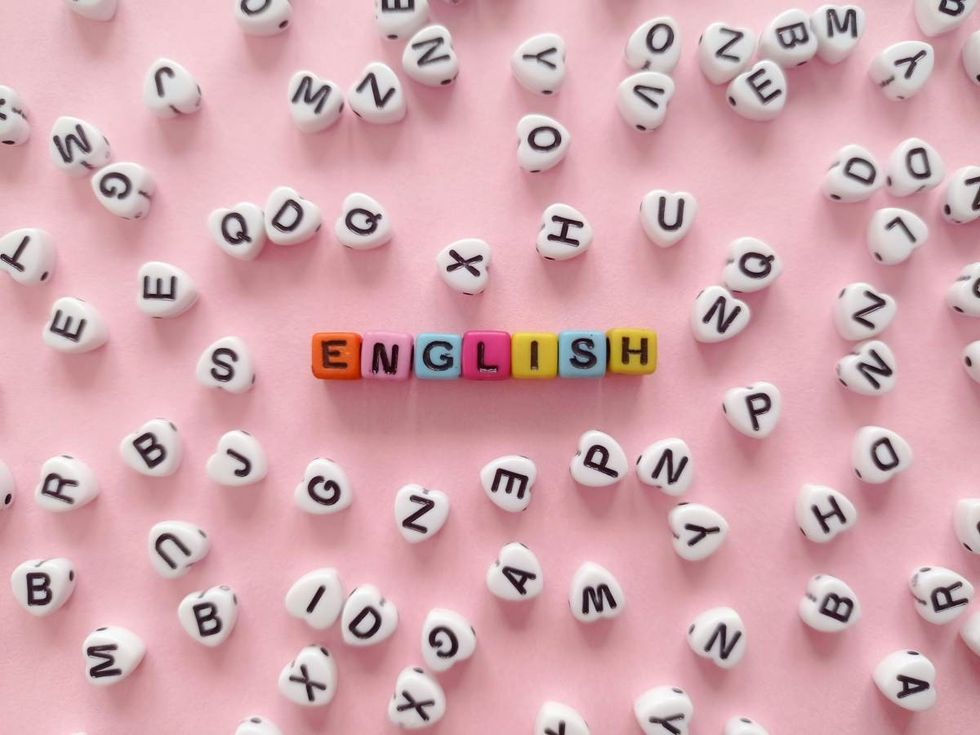
According to IFL Science, Miami English involves translating a Spanish phrase into English but keeping the structure of the original phrase, known in linguistics as a calque. Scientific American explains that calques are all around the English language. For instance, when there was no word for the flower “dandelion,” Germans scoured Latin botany books, where it was called dens lionis, or “lion’s tooth.” French people borrowed the concept of “lion’s tooth,” and calqued it “dent de lion.” This is how the English speakers got the word “dandelion.” In Miami, phrases like “bajar del carro” become “get down from the car” instead of the typical American English translation, “get out of the car.” “Tirar una foto,” became “throw a photo” instead of “take a photo.”
“What is remarkable about the calques is that we found they were not only used in the speech of immigrants – folks who are leaning on their first language Spanish as they navigate the acquisition of English – but also among their children, who learned English as their co-first language,” Carter told IFL Science.

However, Miami English should not be confused with Spanglish, as Carter told NBC News. “The way Spanish and English have intertwined in Miami after the arrival of many Cubans half a century ago has gone beyond what some may call ‘Spanglish and evolved into a new English-language dialect entirely.”
This article originally appeared 1 month ago.


















 A symbol for organ donation.Image via
A symbol for organ donation.Image via  A line of people.Image via
A line of people.Image via  "You get a second chance."
"You get a second chance." 
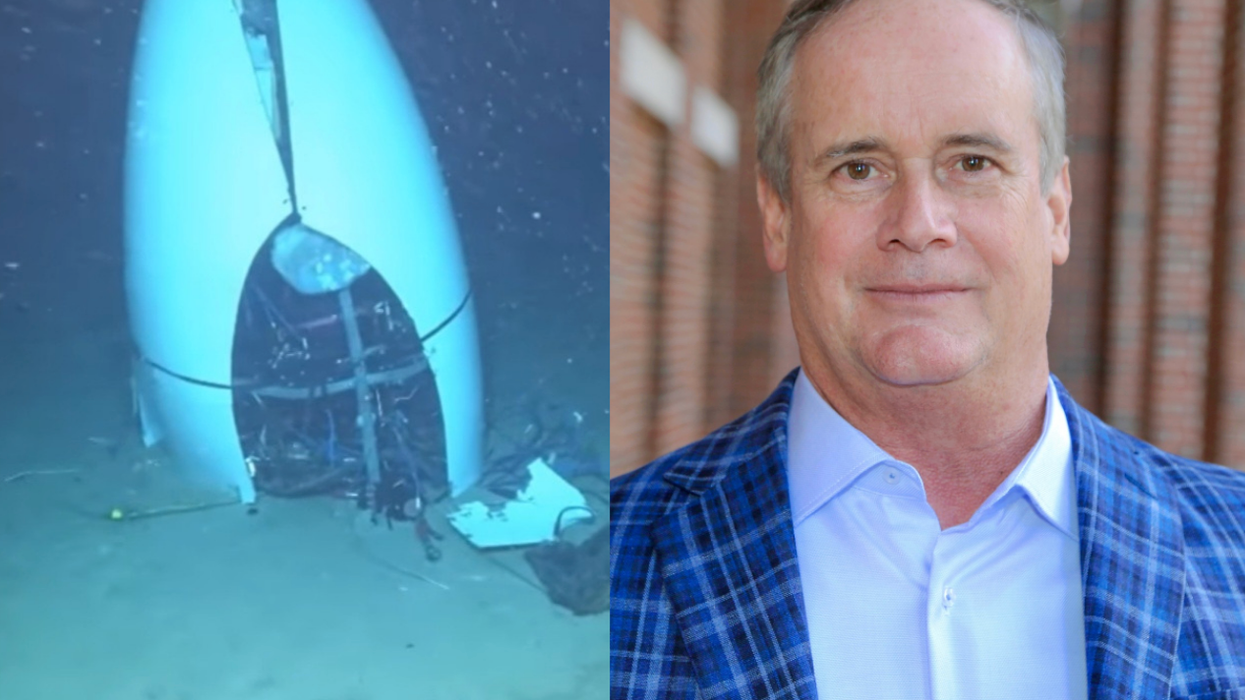

 36 is the magic number.
36 is the magic number. According to one respondendant things "feel more in place".
According to one respondendant things "feel more in place". 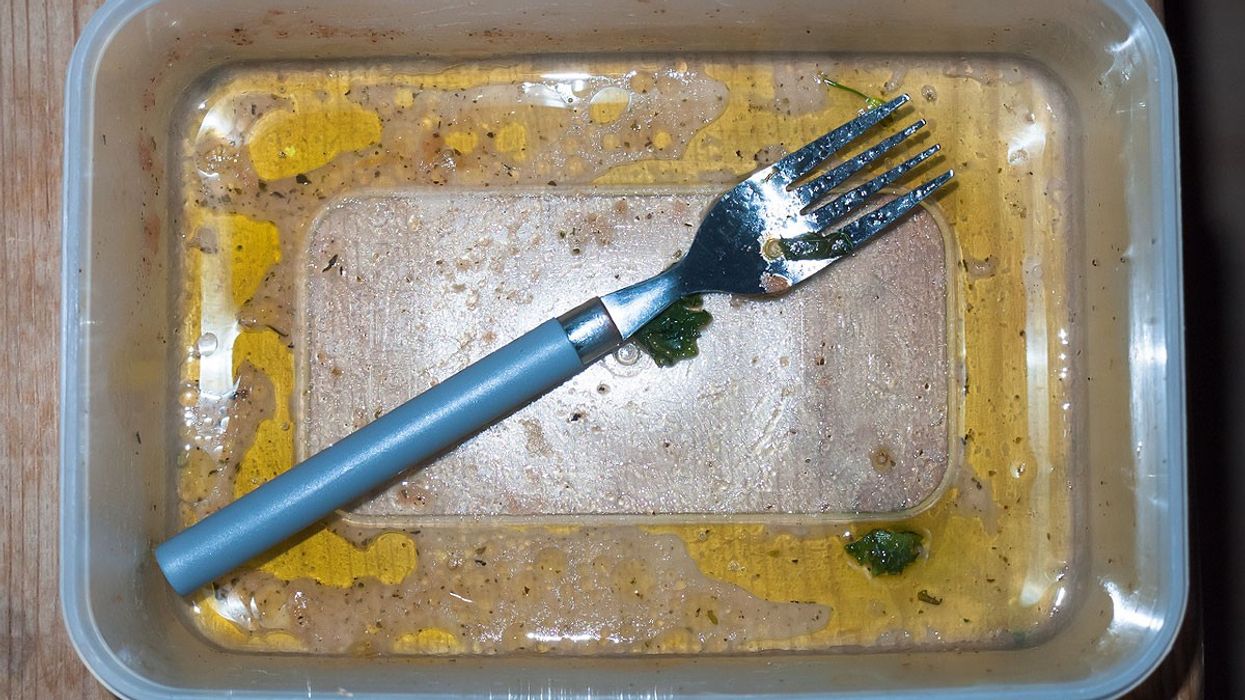
 Some plastic containers.Representational Image Source: Pexels I Photo by Nataliya Vaitkevich
Some plastic containers.Representational Image Source: Pexels I Photo by Nataliya Vaitkevich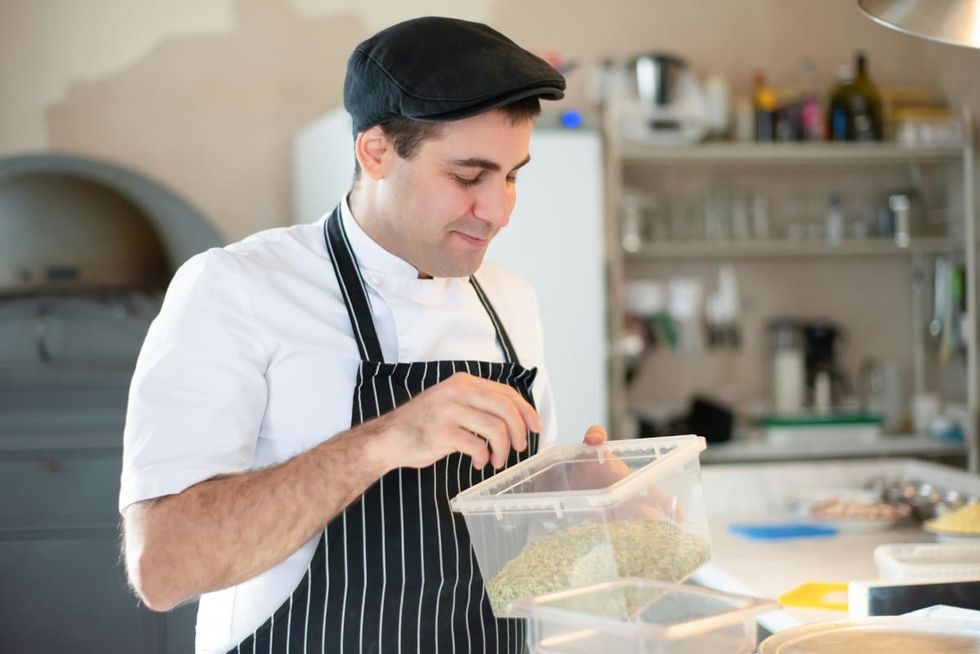 Man with a plastic container.Representative Image Source: Pexels | Kampus Production
Man with a plastic container.Representative Image Source: Pexels | Kampus Production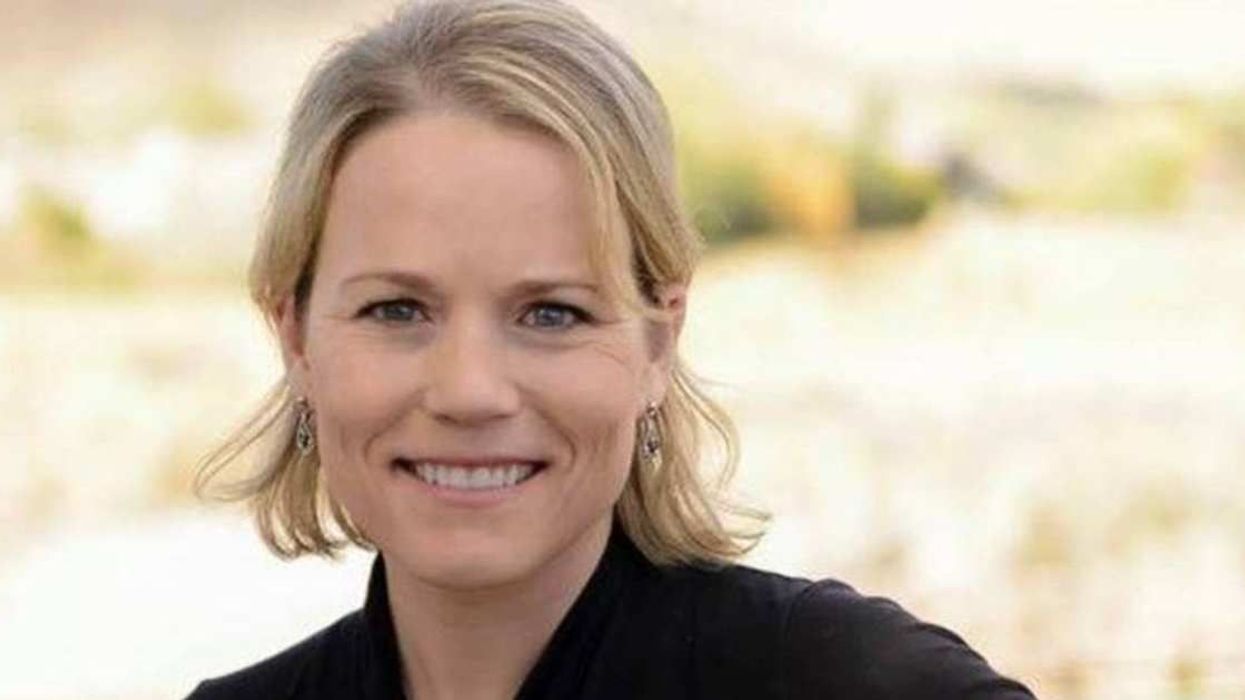
 Canva
Canva It's easy to let little things go undone. Canva
It's easy to let little things go undone. Canva
 Photo by
Photo by 
 Teens are waiting longer than at any point in the survey’s history. Canva
Teens are waiting longer than at any point in the survey’s history. Canva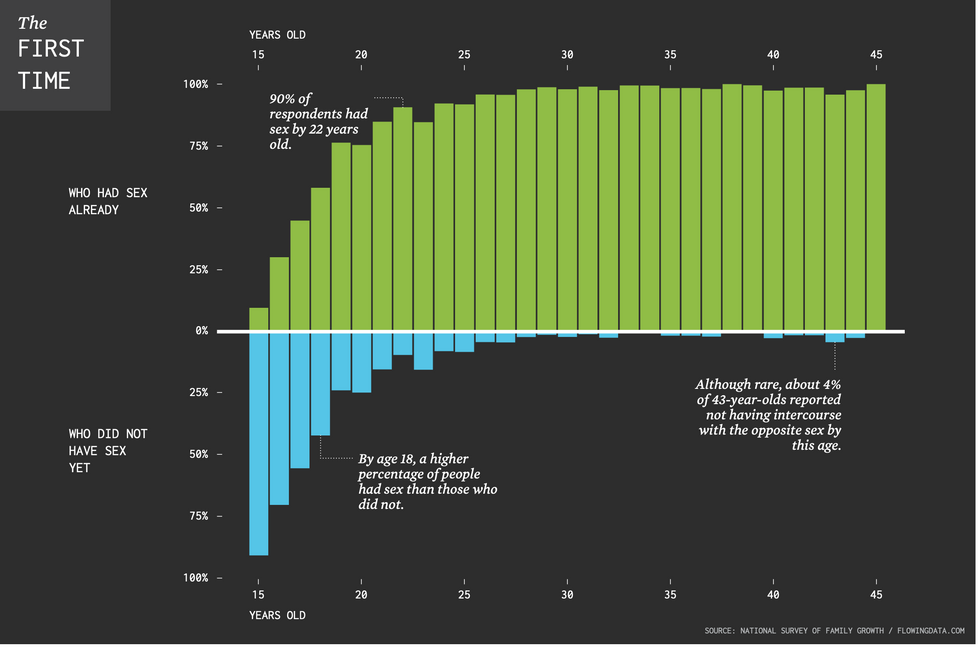 Chart on the age of a person’s first time having sex.National Survey of Family Growth/flowing data.com | Chart on the age of a person’s first time having sex.
Chart on the age of a person’s first time having sex.National Survey of Family Growth/flowing data.com | Chart on the age of a person’s first time having sex.